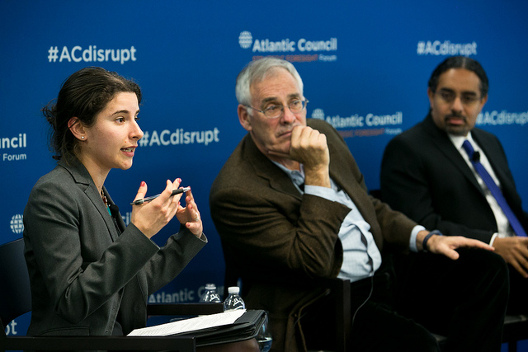 As biotechnology evolves, it’s easier to imagine a future where a steak dinner would be produced in the laboratory and cell parts are replicated via 3-D printer. Scientific American is constantly exploring these frontlines of science and innovation. And this week I moderated a thought-provoking panel exploring how biotech and ICT (information and communications technology) may reshape the coming years as part of the Atlantic Council’s “2013 Strategic Foresight Forum: Harnessing Disruption” conference on December 9 and 10.
As biotechnology evolves, it’s easier to imagine a future where a steak dinner would be produced in the laboratory and cell parts are replicated via 3-D printer. Scientific American is constantly exploring these frontlines of science and innovation. And this week I moderated a thought-provoking panel exploring how biotech and ICT (information and communications technology) may reshape the coming years as part of the Atlantic Council’s “2013 Strategic Foresight Forum: Harnessing Disruption” conference on December 9 and 10.
The focus of the conference was on disruptive technology and how to harness it for good, and Scientific American was a media partner. During my panel, top experts in the field weighed in on how breakthroughs in ICT will influence social inequality, the ethics of disclosing incidental findings in medical testing and bioterrorism risks.
Former Secretary of the Navy Richard Danzig (now a vice chair at the RAND Corporation), futurist and author Ramez Naam, and Michael Nelson, a principal technology strategist from Microsoft, all offered their insights. Check out some of that conversation below:
